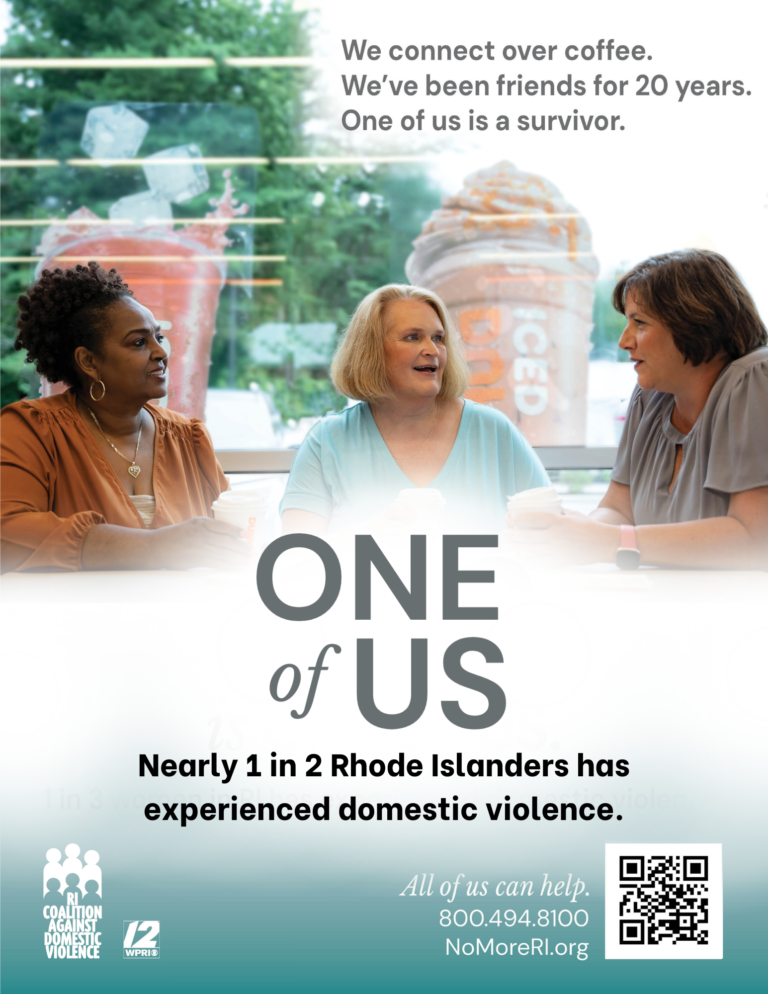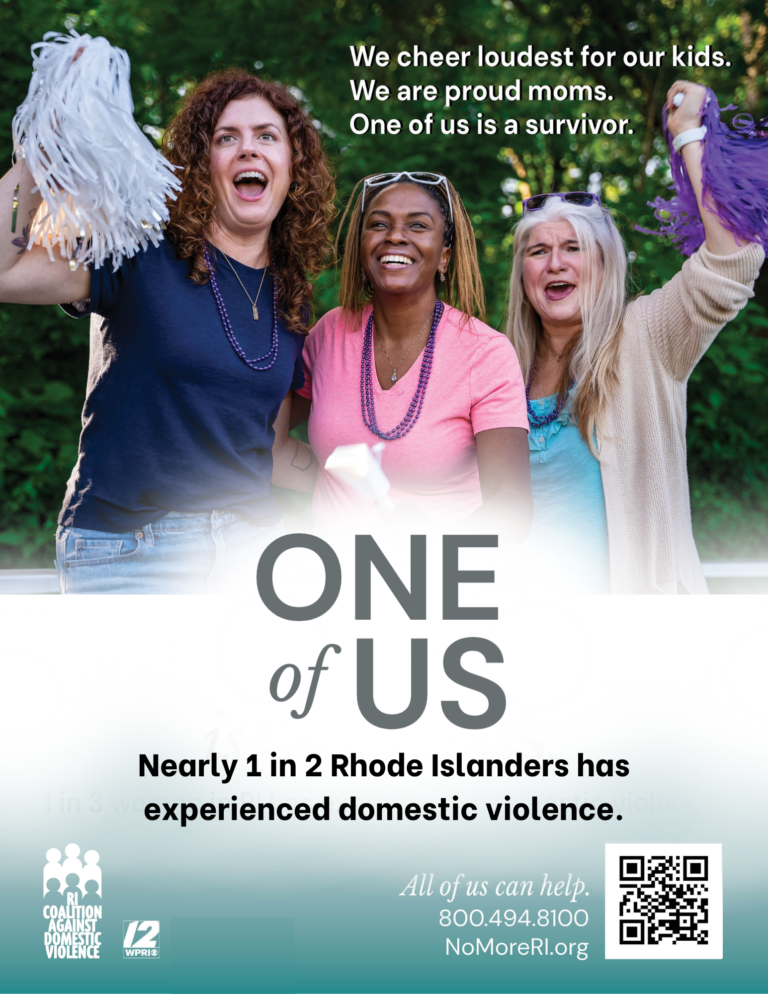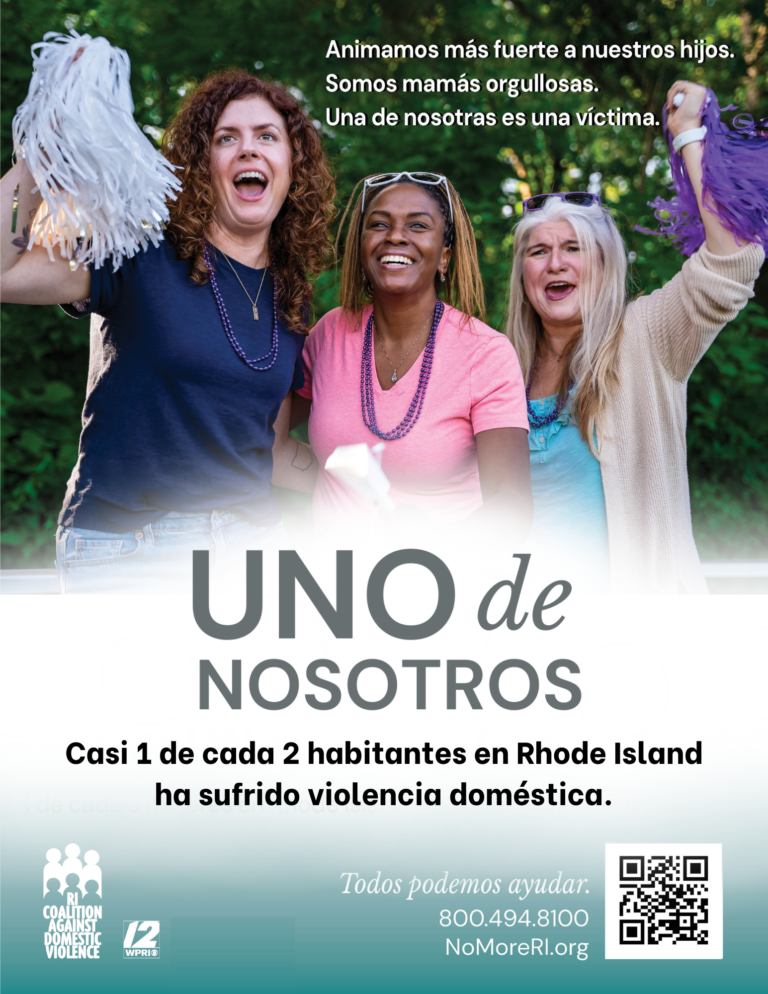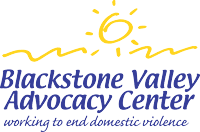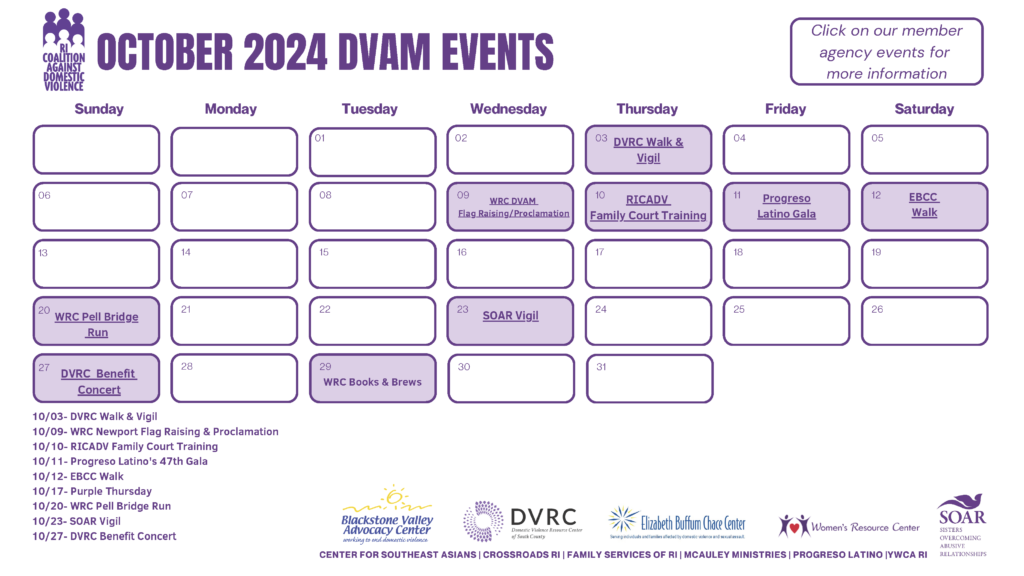October is Domestic Violence Awareness Month (DVAM)
Survivors
are ONE OF US.
Nearly 1 in 2 Rhode Islanders has experienced domestic violence.
Domestic abuse happens in every city and town in our state. Victims and survivors are our friends and family members, our neighbors, and our coworkers.
This campaign celebrates the lives of survivors and their unique personalities. We want to show victims and survivors doing things that they love, whether that’s connecting over coffee with friends, or cheering on their kids at their sports games!
Join the conversation - all of us can help!
In Rhode Island, nearly 1 in 2 residents has experienced domestic violence, with 46.7% of women and 40.7% of men affected. Domestic violence here encompasses contact sexual violence, physical violence, and/or stalking within an intimate relationship. Last year, our campaign centered on the “1 in 3 is one of us” statistic, but as the new NISVS data has shown, the prevalence is even higher than previously understood. The shift in our messaging to “One of us” emphasizes that survivors are now nearly half of the population, underscoring the urgent need for continued awareness and support.
While the rates have increased, it’s critical to note that this is likely due to improvements in data collection methods, such as trauma-informed approaches and changes in sampling, rather than an actual rise in violence. For female survivors, about 60% report severe impacts like PTSD, fear for safety, or the need for legal and medical services, compared to 30% of male survivors. These numbers give us a clearer picture of the scope and impact of domestic violence in our state.
Source
1. National Intimate Partner and Sexual Violence Survey (NISVS), Centers for Disease Control and Prevention (CDC)
Survivors and advocates are aware of the prevalence of domestic violence, but it is still not as widely known or discussed in our communities. Many of us are afraid to talk about abuse or feel it is not our business to bring it up. Abuse is often suffered in silence. We need to break the silence, and more and more survivors are speaking up and sharing their stories.
From statewide arrest report data, we see that year after year, domestic violence occurs in every town and city in Rhode Island. This data only includes incidents of domestic abuse that get reported to law enforcement. Domestic violence is largely underreported due to the many barriers victims face, including fear for their safety, the stigma surrounding abuse, and not being able to access systems and services for support.
With the rates being so high, each of us most likely knows someone in our family or social circle, such as a neighbor or coworker, who has experienced domestic violence. We need to listen and let victims know we believe and support them and it is safe to talk to us about what they are going through. Each of us can support those who are experiencing abuse by showing care, checking in, and offering resources.
In Rhode Island, 1 in 4 men (25.4%)1 has experienced domestic violence in their lifetime. For this data point “domestic violence” includes contact sexual violence, physical violence, and/or stalking within an intimate relationship.
It’s important to note that the impacts for women and men who experience abuse differs. For men, the impacts include about 1/3 of the men who report experiencing abuse. Impacts include experiencing PTSD, being fearful for one’s safety, being injured, missing work or school, and needing legal services, medical care, or help from an advocate.
Source
1. National Intimate Partner and Sexual Violence Survey (NISVS), Centers for Disease Control and Prevention (CDC)
Most data we have access to is framed in the gender binary (male/female). We recognize gender is more complex than the binary construct. It is important that data about domestic violence is collected in a way that is inclusive of all genders and reflects people who identify outside of the gender binary.
LGBTQ+ and gender non-conforming people experience domestic abuse and interrelated forms of violence at the same or higher rates as straight, cisgender people. We affirm it is essential to our work to end violence that gender-based data be accurately, inclusively collected and represented. We continue to work within the RICADV, within systems, and with partners on the local and national levels to advocate for data systems and approaches that accurately represent gender and gender-based violence.
While domestic abuse can happen to anyone of any race, ethnicity, age, gender, sexual orientation, or socioeconomic status, some groups are at an increased risk for violence. This is in part because the distribution of resources that keep people safe and promote our well-being is not equitable. Systems of oppression drive these inequities and create harmful conditions that increase the risk for domestic violence, such as poverty and a lack of educational and economic opportunities. Systems of oppression include racism, sexism, and transphobia. The groups most impacted by domestic violence are also those most impacted by other forms of violence and systemic oppression, including Black, Indigenous, and People of Color (BIPOC) individuals, women, people who are LGBTQ+, people with disabilities, immigrants, and people who are or have been incarcerated.
Rhode Island’s 2019 Youth Risk Behavior Survey (YRBS) data1 shows the following prevalence rates for Rhode Island public high school students who reported dating violence or forced sex during the past 12 months, among those who have dated someone within the past year:
- 4% among public high school students
- 5% among lesbian/gay/bisexual students (vs. 7.3% among straight students)
- 8% among gender nonconforming students (vs. 8.4% of students whose gender expression aligns with their sex)
- 3% among students who have a disability (vs. 7.5% among students who do not have a disability)
The majority of these victims were 15 to 18 years old.
1Cross-tabulation analyses were provided to the RICADV by the RI Department of Health by request.
This awareness campaign was developed in partnership with survivors who shared their diverse experiences and stories, some of which are reflected in the images of the campaign. However, the campaign does not represent or encompass all survivor experiences.
Oftentimes, you may not know someone is a victim. People who are experiencing abuse may still be active in the different areas of their lives, as colleagues, friends, or parents. Just because someone is smiling does not mean they feel safe at home or they are not experiencing abuse.
For example, we have heard from survivors that their place of work was the only place they felt happy because they could be themselves, so at work they were often smiling. Others have shared that they felt they had to fake a smile because no one knew what they were going through, and they did not feel comfortable or safe asking for help. Some survivors have shared that when they were in the abusive relationship, they were never smiling, and the abuse was the worst experience they have ever lived through. We acknowledge the devastation, isolation, and trauma of domestic abuse, and the strength and resilience of survivors.
Victims and survivors can be of any age. Over the past year, there have been several cases of lethal domestic violence in Rhode Island involving victims over the age of fifty.
Although the risk for intimate partner violence (IPV) is greatest amongst women ages 18 to 24, we know that abuse impacts people across the lifespan, including children, teens, and older adults.
Isolation
Some victims of domestic violence are isolated by the abuser and prevented from seeing their friends or family members. Some are kept from going to work or school and are not able to participate in hobbies or activities. Abusers often use this tactic of isolation to further control the victim and prevent them from telling others about what is happening to them or seeking help.
This DVAM, our radio public service announcement (PSA) shares about three friends who have been inseparable since high school. Two of the friends are missing the other, who has not been responding to texts. They decide that something does not feel right and that they need to check in on her. We can all help prevent domestic violence by learning about its warning signs, including a friend or loved one becoming isolated in their relationship. If you suspect or know that someone is experiencing abuse, let them know you are a safe person they can trust. Check in on them and keep reaching out. Call the 24/7 confidential Helpline (800-494-8100) for resources. Turn to page 20 in our Peace at Home informational handbook for ways you can help (English/Español).
Financial abuse
According to the Allstate Foundation, financial abuse occurs in almost 99% of abusive relationships. Surveys of survivors show that their concerns over their ability to financially support themselves and their children were often one of the main reasons for remaining in or returning to an abusive relationship.
When financial abuse is present, the abusive partner may restrict the victim’s access to funds, prevent them from working, or monitor and control every dollar they spend. We acknowledge that some people experiencing abuse may not be able to go out and have a coffee with friends because the abuser is controlling their money or may be monitoring or isolating them.
We recognize that the impacts of financial abuse create barriers to a victim leaving the relationship and establishing financial stability. If the victim was not allowed to work while in the relationship, they may have trouble finding a new job because of gaps in work history. They may not have any savings because the abuser controlled their money. The abuser may have sabotaged their credit by creating debt in the victim’s name. Domestic violence is also a leading cause of homelessness for women and children. Survivors often struggle to access safe, affordable housing and must choose between staying in the abusive relationship or becoming homeless.
Visit our NEED HELP page for information about local community resources.
We use the terms “victim” and “survivor” to raise awareness in our work and to be inclusive of the different experiences and perspectives of those who have experienced abuse.
Some people identify with one term or the other, some use both, and some do not use either term.
We honor the victims whose lives were taken by domestic violence.
To learn more, view the RICADV’s report, Domestic Violence Homicides in Rhode Island: 2016-2020 Report.
Yes! It is possible to end domestic violence for future generations. At the RICADV, part of our work focuses on preventing domestic violence before it has the chance to start. We can do this by working to create communities that are safe, connected, healthy, and equitable. With this goal in mind, we can address the community conditions that increase the risk for violence, such as poverty, social isolation, and harmful gender norms.
As a state, we must also strengthen the ways that Rhode Island supports and protects victims of abuse and their children. By taking domestic violence seriously and making sure victims have the resources and services they need and deserve, we send the message that we believe survivors and we do not tolerate violence. This can help create the culture change needed to end abuse.
What can we do as community members?
Below are resources for people experiencing abuse and those who want to help.
- Resources for victims and survivors of abuse
- Resources for community members who want to help
- Learn more about domestic violence from our Peace at Home informational handbook (English/Español).
- Download this contact information sheet with local resourcesfor victims and survivors of domestic violence in Rhode Island.
Local services for victims and survivors of domestic violence
*Our member agencies each cover a region of the state. Their areas are listed above, however, anyone in RI can get services at any agency.
Central Falls, Cumberland, Lincoln, Pawtucket, Providence, Woonsocket, Burrillville, Glocester, North Smithfield, and Smithfield
Charlestown, Exeter, Hopkinton, Narragansett, New Shoreham, North Kingstown, Richmond, South Kingstown, and Westerly
Coventry, Cranston, East Greenwich, Foster, Johnston, North Providence, Scituate, Warwick, West Greenwich, and West Warwick
Barrington, Bristol, East Providence, Jamestown, Little Compton, Middletown, Newport, Portsmouth, Tiverton, and Warren
Affiliate Member Agencies are organizations whose work includes some programming to address or prevent domestic violence.
Download the 2024 DVAM Events Calendar
Click on the image below to download our 2024 DVAM Events Calendar, which includes registration links for many of the events hosted by the RICADV and our member agencies
Check out our social media toolkit. Use the banners, share our posts, and get involved by helping to raise awareness this DVAM!
